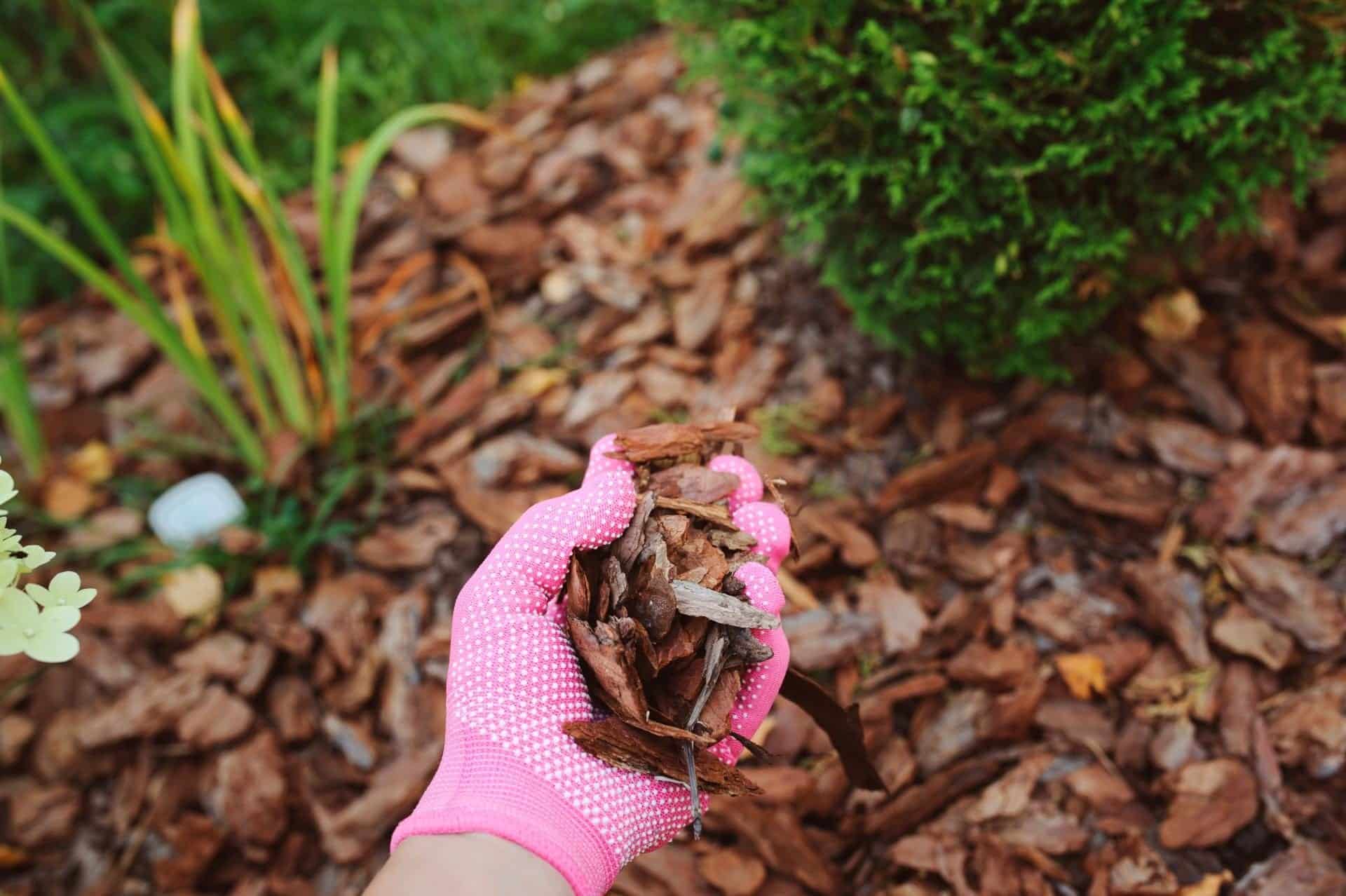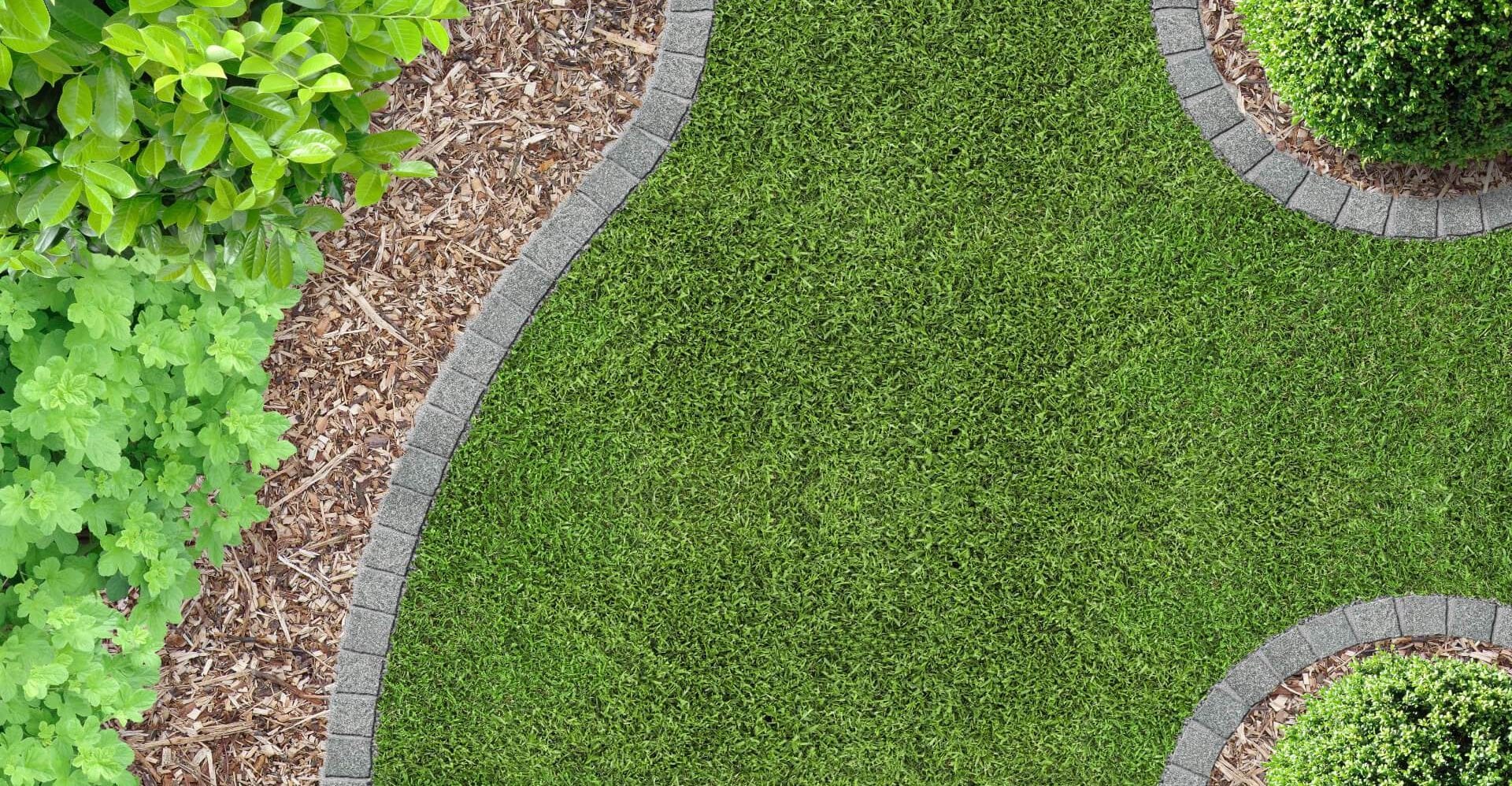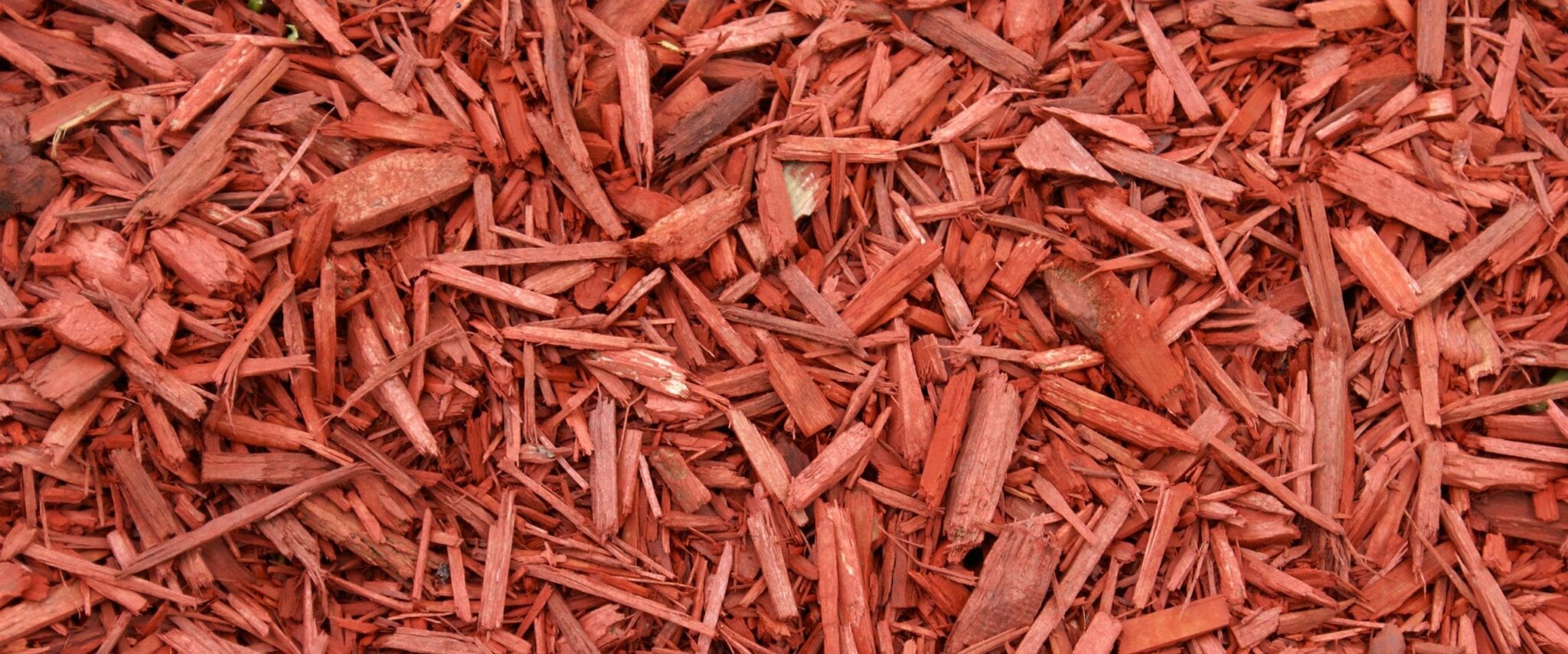Many homeowners are unaware that mulch needs to be appropriately maintained to continue providing your plants and gardens benefits. While it adds to the curb appeal of your property, you may not be informed of the many benefits it brings to your plants and trees. Mulch takes little effort to maintain and gives properties a neat, finished look that many homeowners love.

What is Mulch?
Mulch is a general term for any material, organic or inorganic, that is spread or laid over the soil in your landscaping. It’s recommended to apply mulch in the spring and add it periodically throughout the growing season if needed. The soil should be covered entirely after application, but be sure not to touch any plant stems or tree trunks with the mulch in the application process.
Types of Mulch
There are many different types of mulch on the market today, falling into two categories, organic and inorganic. When choosing the type of mulch you’ll use on your property, it’s encouraged to determine what your goals are for your property and what benefits you would like it to bring for your landscaping. Inorganic mulches are more permanent, less environmentally friendly, and have a slower degrading process if any. Organic mulches add organic matter to your soil and improve it over time as the material decomposes.
Organic
- Shredded or Chipped Bark
- Wood Chips
- Sawdust
- Buckwheat Hulls
- Cocoa Shells
- Hay
- Salt Marsh Hay
- Compost
- Composted Manure
- Grass Clippings
- Pine Needles
- Newspaper
- Shredded Leaves
- Straw
Inorganic
- Black Plastic
- Landscape Fabric
- Stone
- Gravel

Why Should You Use Mulch?
Incorporating mulch into your landscaping design adds to the curb appeal of your home and offers many benefits to your soil and plants. With the addition of mulch, you will be impressed with how much of your gardening chores are minimized.
- Water Conserving
- Protects Soil Temperature
- Slows Weed Growth
- Improves Soil Quality
- Root Protection
- Improved Nutritional Value in Soil
- Less Prone to Erosion
- Reduce Spread of Plant Diseases
Caring for Your Mulch
While there are many different methods to care for your mulch correctly, the steps below are a simple process that doesn’t require a lot of time. Maintaining your mulch will keep your landscaping looking top-notch.
- Rake and Turn. If mulch sits in your gardens and landscaping for long periods for time, it is possible that mold can grow beneath the top layer. It’s encouraged to rake your mulch and turn it over regularly as this will promote airflow and allow water to reach the soil rather than settling on top.
- Weed Maintenance. Over time, mulch begins to lose its life, and you may see weeds start to form. It’s recommended to monitor your mulch and pull or spray for weeds periodically to prevent any excessive growth. After pulling any weeds and before spraying with any chemicals, rake and turn your mulch.
- Freshen Up. Mulch starts to fade and decompose over time, meaning it will lose the fresh coloring that compliments your property. A new layer of mulch should be added each year by blending it into existing mulch. Be sure to mix them up and remove some of the old, so the soil doesn’t remain compacted underneath.
Common Mulch Problems
There are many different problems that you can encounter with mulch, but the ones below are the most common. Most mulch issues can be alleviated with a few simple steps and proper mulch maintenance. Monitor your mulch regularly and visit a garden center or utilize online resources if a problem arises.
Artillery Fungus
This fungus originates and populates on organic matters such as wood mulch. It is identified as tiny cream or orange-brown cup-shaped fruiting structures that contain a small black spore mass. The fungus releases the spore mass into the air periodically, and it attaches to any surface it hits. Property owners will notice this fungus by small black spots appearing on plant leaves or home siding. The spores are usually tough to remove, so it’s encouraged to apply a new inch of mulch each year to contain or incorporate mushroom compost into your mulch beds as a preventative measure.
Slime Molds
While its appearance may be alarming, slime mold is not a serious problem and doesn’t pose a threat to your property. This common mold appears as a bright yellow or orange slimy mass covering about a foot or more in diameter. Tiny spores are produced over time, and they eventually dry up and blow away. There’s no need to try to resolve the issue unless it’s a bother to you for your property’s curb appeal.
Sour Mulch
If you’re noticing a funny smell coming from your mulch, it may have gone sour. Sour mulch will have an odor of alcohol, vinegar, ammonia, or sulfur. This is caused by wood-derived mulch being piled high with the inside portion being deprived of oxygen. This occurrence causes a build-up of acetic acid in your mulch, which results in a sour smell. It’s vital to be aware of this common issue as the acid is toxic to plants, and if mulch is spread without treatment, it can cause your greenery to die.
- Spread Mulch Thinly on Tarp
- Soak With Water
- Allow to Dry Completely
- Verify Smell is Gone
- Spread Around Plants

Recycled Wood Product Mulches
Be sure to check the ingredients in your mulch and verify that you’re purchasing it from a reputable source. Some companies recycle discarded wood and wood-based products by shredding them and adding a coloring agent. While it may look like quality mulch, these commercially produced products will likely decompose at a faster rate and could contain substances that are harmful to vegetable gardens, humans, and pets.
Identify the Best Mulch for Your Property
Mulch can be an excellent addition to your property and provides plants and trees with incredible benefits from improved soil quality and water conservation to slowing weed growth and reducing the spread of plant diseases. Proper mulch and landscaping maintenance are essential to yield the most benefits for your property. Begin researching the best type of mulch for your property and improve the appearance of your landscaping with mulch application.
